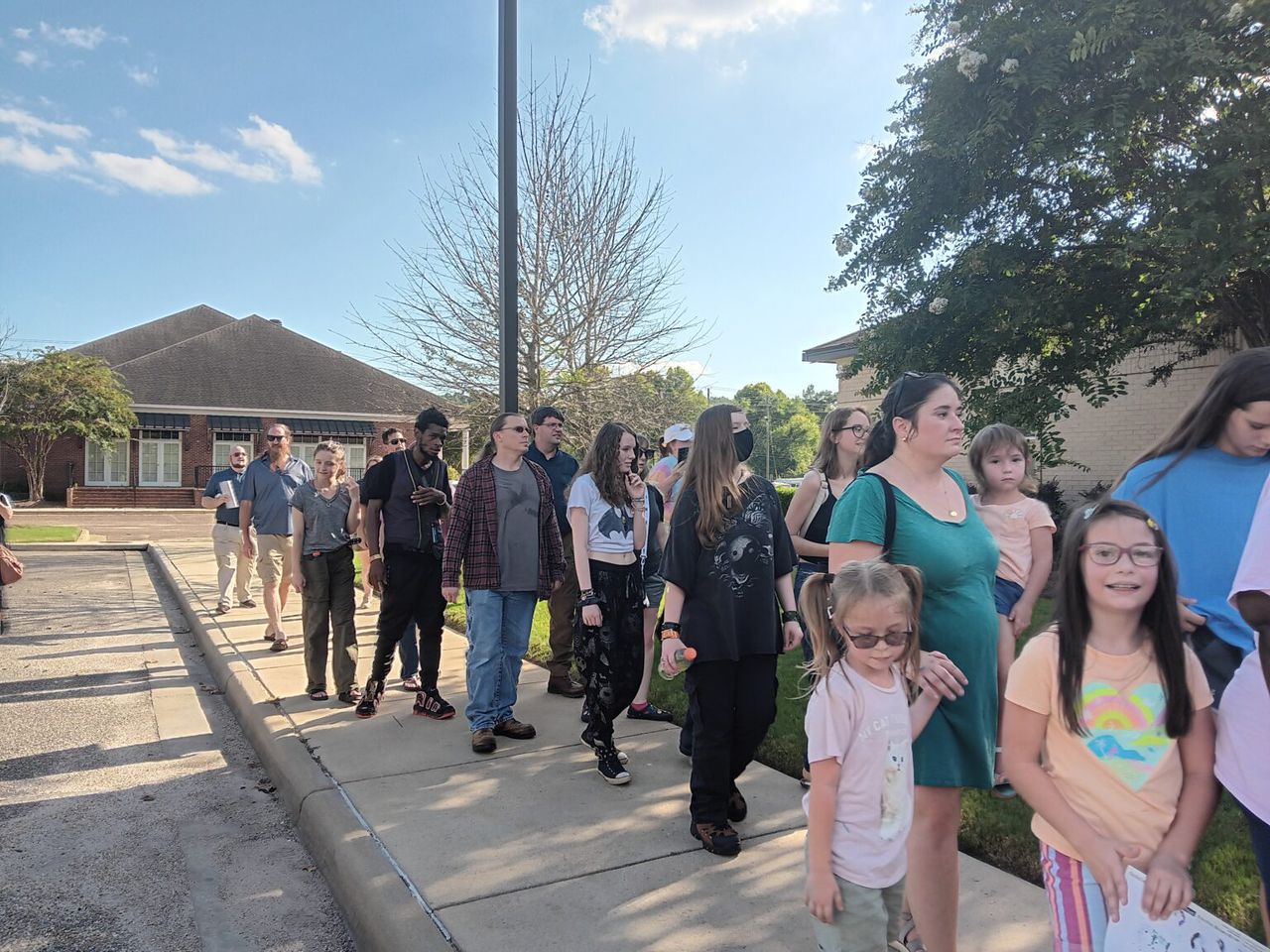Alabama library service director says book decisions are local, LGBTQ representation needed
A week after Gov. Kay Ivey sent a letter to the state’s library agency raising concerns about whether certain books are appropriate for children, the executive director of the Alabama Public Library Service said decisions about content must be made at the local level.
“From the state agency, we really have no control over that.” said Nancy Pack, executive director of APLS, during an episode of Capitol Journal that aired Friday.
“It goes down to the local level. The local level decides what materials go into their collection. And it is the local libraries that set the policies for the viewing, where they locate the materials and it’s all up to local policy and procedure.”
In a Sept. 1 letter, Ivey said she had grown increasingly concerned about “the environment our Alabama libraries are providing to families and children.”
“I am deeply grateful for the work Alabama libraries do, day in and day out, to engage our children and promote a lifelong love of learning – including by providing information that may be unavailable elsewhere in a community,” Ivey wrote. “At the same time, however, I respect parents who want their young children and teens to be able to freely explore a library without fear of what those children will find there.”
The Alabama Public Library Service administers state and federal funds to libraries across the state. Last year, APLS received nearly $13 million in state funds – about $5.5 million of which went directly to local libraries.
The service helps train local librarians and aims to ensure all libraries are providing quality services, but it’s typically up to local branches to screen books and handle any concerns.
Ivey’s letter comes after recent efforts in Prattville, Foley and other parts of the state to “clean up” local libraries. Over the summer, several parents challenged children’s and young adult books that discussed gender identity and other LGBTQ themes, as well as some sexual content.
Pack said calls for increased censorship in libraries are not unique to the current political climate, but that parents should ultimately determine what is appropriate for their child.
“There will always be some type of censorship going on in libraries over something that someone does not feel as appropriate for their community or their child. And particularly when we’re dealing with children,” said Pack.
“I agree with Governor Ivey that children should be able to use the library and encourage them to read because that’s a place where they can read anything they want to read and have a wide assortment of books and opinions. However, I think there is the parental guidance that is needed in a library with the parents deciding what is appropriate for their child to read.”
Last week, the Prattville City Council voted 4-3 against a contract that would have raised the age in the young adult section to 18, defined sexually explicit material, prohibited minors from checking out books that contained any of those terms and allowed council members to pull funding from the library at any time.
Ivey, in her letter, claimed the following books displayed in local libraries were inappropriate for their labeled age range and should be moved to a different section:
- Foley Public Library: “Who are You?: The Kid’s Guide to Gender Identity”
- Prattville Public Library: “The Pronoun Book” and “If You’re a Kid Like Gavin”
- Ozark Dale County Library: “The Mirror Season” and “Only Mostly Devastated”
LGBTQ-affirming board books and children’s books in Foley and Prattville libraries, she said, were not appropriate for toddlers and children under eight. She also claimed some young adult novels in the Ozark Dale County Library featured “graphic sex scenes.”
Pack said during her interview on Capitol Journal that for at least one of the books in question, only seven libraries in Alabama had the book on their shelves. All seven of those libraries, Pack said, were in diverse communities of over 75,000 people.
Pack said it’s important for libraries to strike a balance and allow children from all backgrounds to see their families and experiences represented in books too.
“You have children who want to see their family and you see in most children’s books, you see a mom or dad and children and you see racially mixed families,” said Pack.
“But when you get down to the gay and lesbian books, there’s not a whole lot of them out there that show two moms or two dads and the child. And that child wants to see their family represented like in all these other books, you know, you have mom and dad and children here, why aren’t …my two moms or two dads represented like that?”
Ivey asked Pack to provide an answer to her list of questions before the APLS board meets on Wednesday. Pack said she is still in the process of formally responding to the governor.
